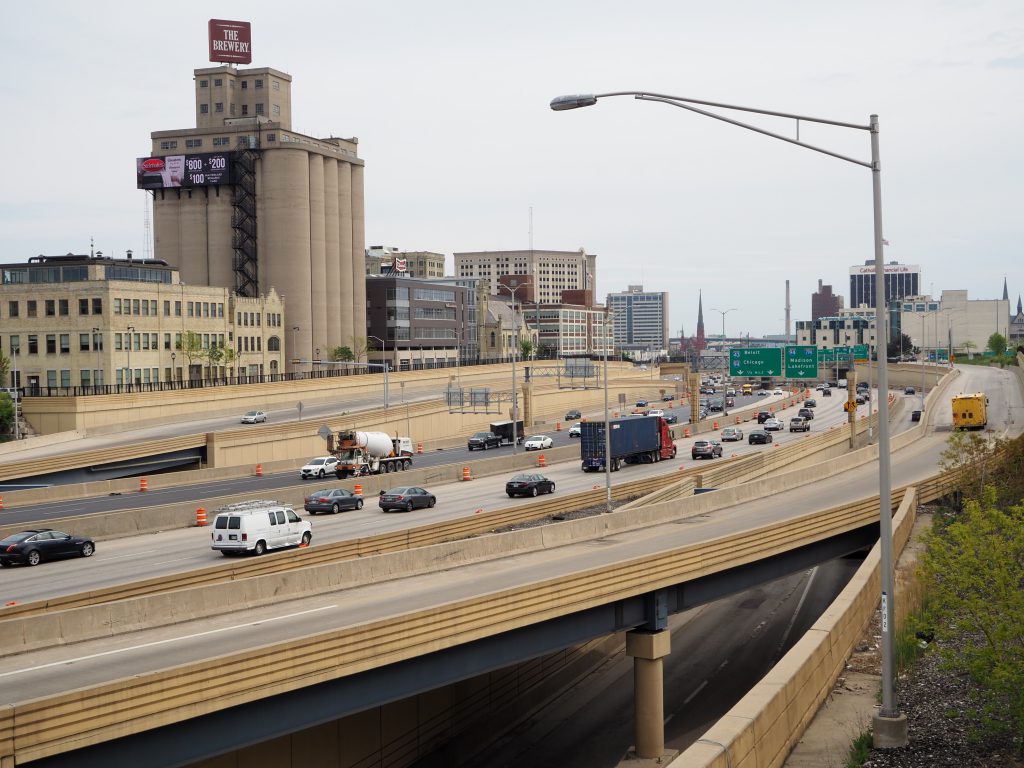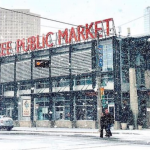Is Your Commute Harming Your Health?
All the city news you can use.
Every day at The Overhead Wire we sort through over 1,500 news items about cities and share the best ones with our email list. At the end of the week, we take some of the most popular stories and share them with Urban Milwaukee readers. They are national (or international) links, sometimes entertaining and sometimes absurd, but hopefully useful.
Less traffic, more superblocks: Streets make up much of the publicly owned space of cities in the United States and they are used primarily for vehicles that are not human scale. In order to give people more public space and improve health and well being, some cities have turned to the concept of the superblock, which pushes traffic to the periphery of an area while opening up internal spaces for people. Barcelona is most well known for this concept but Amanda Shendruk believes it can work here as well. (Amanda Shendruk | Washington Post)
Is your commute harming your health?: Numerous studies show the harmful mental and physical health detriments of long commutes in cars. Commutes that expose people to noise pollution and toxic air have been shown to dampen moods and increase stress at over 30 minutes. On the flip side, sustainable commutes that include active transportation such as walking or biking are beneficial to our health, releasing good chemicals such as serotonin, oxytocin, and endorphins. (Nikita Luke | The City Fix)
Federal lands for affordable housing: The White House and Republicans have found something they can agree on, that public lands can be opened up for development of housing. However that’s where the agreement ends as Republican bills would open up land without guarantees on housing and the administration wants only land in development zones near cities made available for housing. As home shortages and construction are extremely local needs, any program would have to be targeted to make a difference. (Katy O’Donnell | Politico)
Cities heating up at night: Growing cities such as Las Vegas, known for its daytime heat, are increasingly getting hotter at night. The growth in population and infrastructure to accommodate it have had an intense heat island effect on the city and surrounding area. 50 years ago, nights only got above 79 degrees maybe 20 nights per year. Now it’s 60 nights. Night heat can be dangerous in that the human body isn’t allowed to cool down. (Ronda Kaysen and Aatish Bhatia | New York Times Upshot)
Chennai finds savings in redesigning metro stations: The city of Chennai in India with a population of 12 million people has begun design work on stage two of it’s metro network which will cover 72 miles. To save costs, engineers have redesigned the ventilation systems to reduce the size of stations 40%. The change has already saved ~$240m in procurement costs. Total costs are said to be reduced from around $12B to $8.5B with the additions of these and other cost saving measures. (U Tejonmayam | Times of India)
Quote of the Week
Local government associations would be wise to engage proactively and early in this innovation process so that the new tolling systems capture granular local road use data. Otherwise, they will be stuck with nothing more than hand-me-down state dollars assigned to them by conventional population and road-mile formulas. Now is the best time for cities, towns and counties and their finance teams to start staking a claim on the revenue stream and make reasonable demands for granular data capture that can be used to assess user fees to fund local streets and roads.
–Girard Millar in Governing discussing opportunities for cities to get out front on reimagining road funding as the gas tax era closes.
This week on the Talking Headways podcast, Chris Redfearn of USC and Anthony Orlando of Cal Poly Pomona discuss why “pro-business” Texas housing markets are catching up to “pro-regulation” California and what it might mean for future city growth everywhere.
Want more links to read? Visit The Overhead Wire and signup.
If you think stories like this are important, become a member of Urban Milwaukee and help support real, independent journalism. Plus you get some cool added benefits.
Urban Reads
-
Congestion Pricing Cuts Air Pollution in New York City
 Dec 14th, 2025 by Jeff Wood
Dec 14th, 2025 by Jeff Wood
-
We Think We Love to Drive. But Do We Really?
 Dec 7th, 2025 by Jeff Wood
Dec 7th, 2025 by Jeff Wood
-
Can Scott Wiener Tackle America’s Housing Crisis?
 Nov 23rd, 2025 by Jeff Wood
Nov 23rd, 2025 by Jeff Wood






















